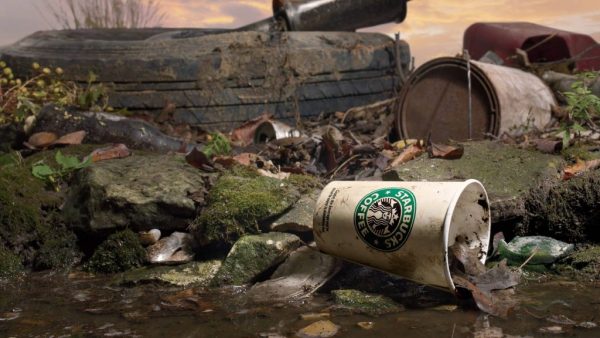
Starbucks epitomizes the social construct of being overrated. It achieved its success by promoting an elitist culture and selling overpriced coffee. Furthermore, it seemingly opposes efforts to combat the genocide in Palestine. Yes, since its emergence in the 1990s, the coffee shop chain has meticulously crafted its brand by prioritizing exceptional customer experience. This includes amenities such as reliable Wi-Fi, comfortable seating, and clean restrooms. However, in the social and economic climate of 2024, it has proven itself to be another exploitative multibillion-dollar corporation.
Starbucks is now known for offering some of the most expensive beverages in the chain of coffeehouses. Economic principles suggest that the perceived value of a product should align with its price. However, some argue that Starbucks’ pricing may not always reflect the quality or uniqueness of their offerings, leading to a perception of overpricing. However, it’s essential to acknowledge that perceptions of value and pricing can be subjective and influenced by individual preferences, cultural norms, and brand loyalty.
Targeting a demographic that is willing to pay premium prices for its products, Starbucks has cultivated an image of exclusivity and luxury. They are more than just a coffee shop; it’s a lifestyle brand. Starbucks has become a status symbol, where carrying a Starbucks cup can signal affluence and sophistication. The company strategically designs its stores to create an atmosphere of elegance and comfort, encouraging customers to linger and enjoy the experience of indulging in their favorite beverages. This exclusivity contributes to the perception of elitism surrounding the brand. It caters to the type that would sneer at the concept of homemade store-brand coffee or cheaper alternative from a small family run cafe.
America’s perception of Starbucks began to shift in late 2023 when the company filed a federal lawsuit against Starbucks Workers United in October, alleging trademark infringement prompted by a social media post from the union stating, ‘Solidarity with Palestine!’ Starbucks issued an official statement reading, “We unequivocally condemn these acts and disagree with the statements and views expressed by Workers United and its members.” In response, Starbucks Workers United countersued Starbucks in a Pennsylvania federal court, seeking permission to continue using its name and a similar logo. Additionally, the countersuit alleges that Starbucks defamed the union by insinuating they support “terrorism, hate, and violence.”
This suit reflects a broader trend of stifling dissenting voices. Starbucks’ attempt to distance itself and sue the union is an infringement on free speech and an effort to suppress a political stance sympathetic to the Palestinian cause. Starbucks’ condemnation of the union’s statements has been viewed as aligning with Israel and has influenced public opinion as, Lucas Frau from NorthJersey on December 14, 2023, stated,” The TikTok data center shows that #boycottstarbucks has been used in about 5,000 posts generating over 42 million views in the past 30 days.” Since then, Starbucks has seen an 8.96 percent loss, losing $11 billion in market value in just a few weeks.
As many young people in the USA struggle to find financial stability in 2024 due to inflation, they have found it financially beneficial to leave behind the overpriced drink for homebrew coffee and/or cheaper community cafes, saving over $1,000 a year. The animosity festering between the company and the American people, caused by its ridiculous prices, exclusive culture, and possible support for Israel has hurt Starbucks reputation. Not only have the boycotts shown that corporate superpowers should take them seriously, but they have also tarnished the coffee chain’s once-superior image.





